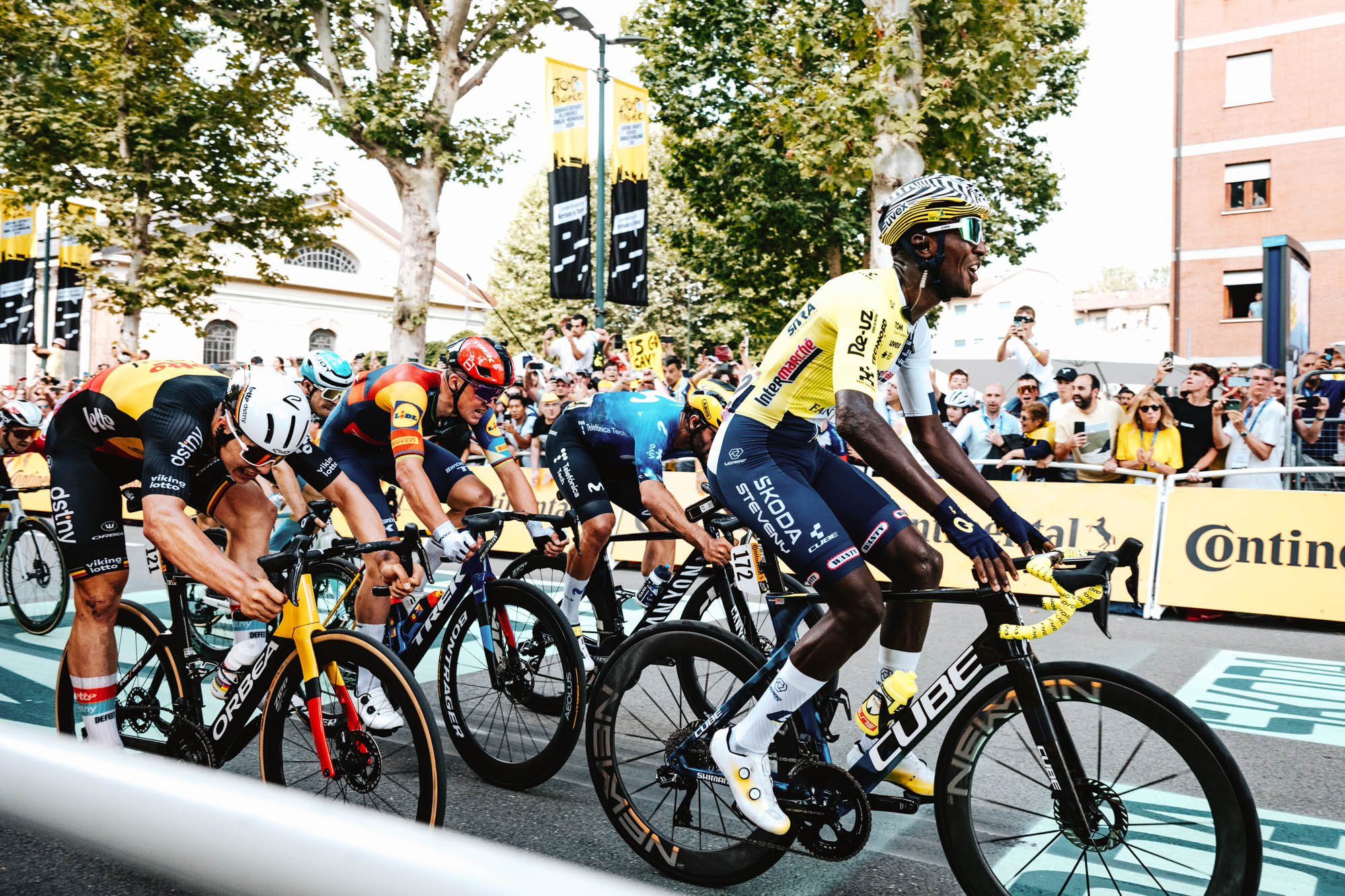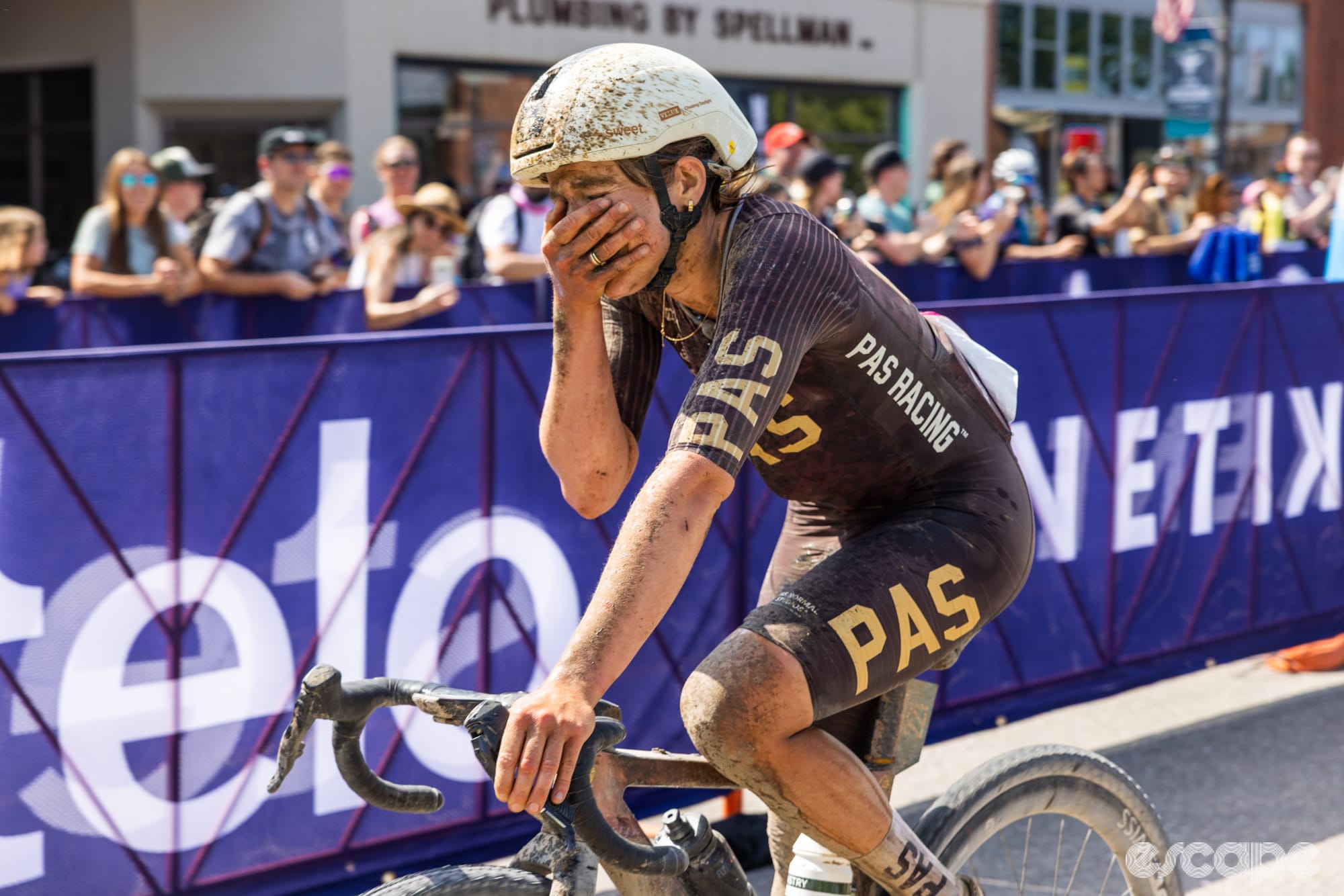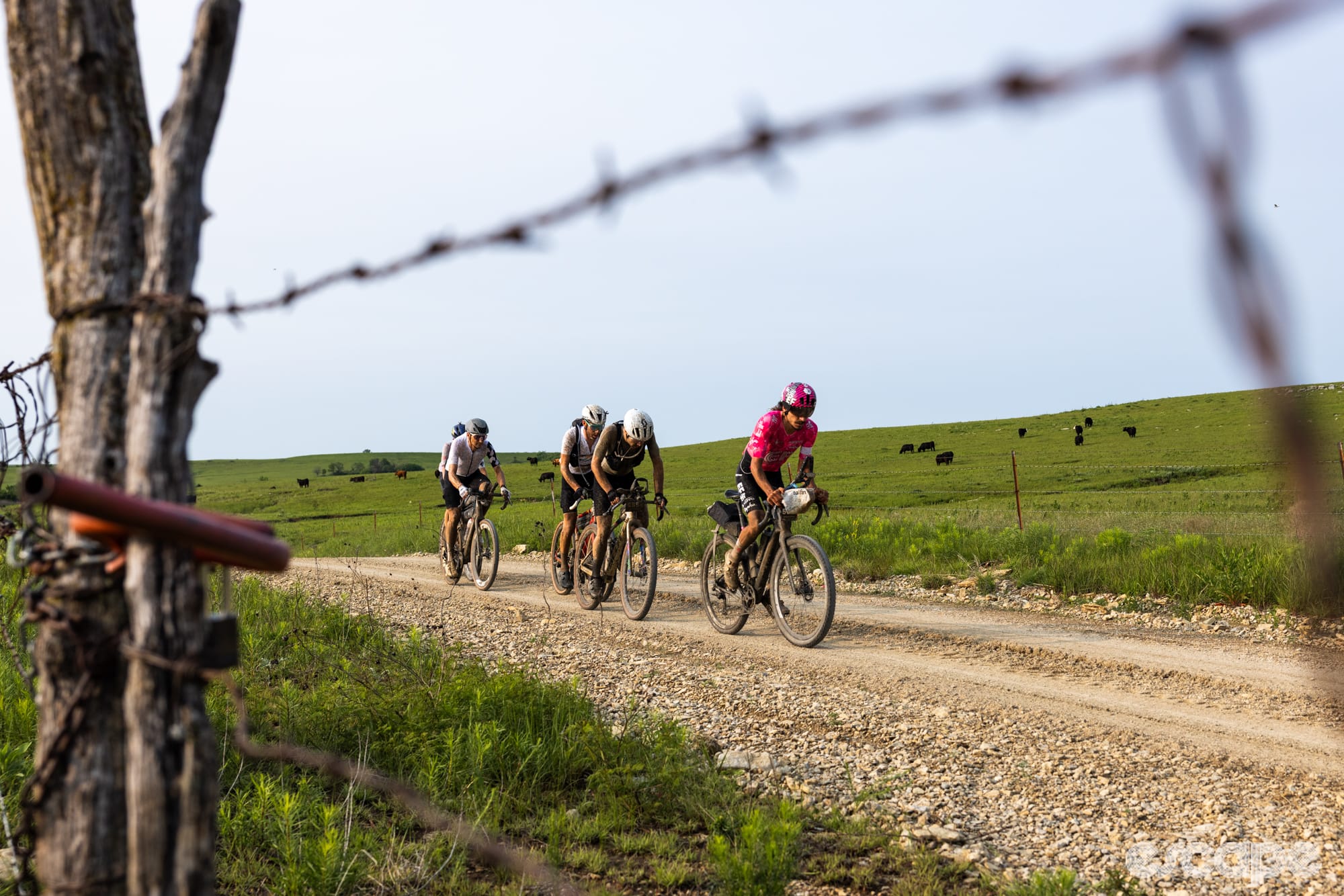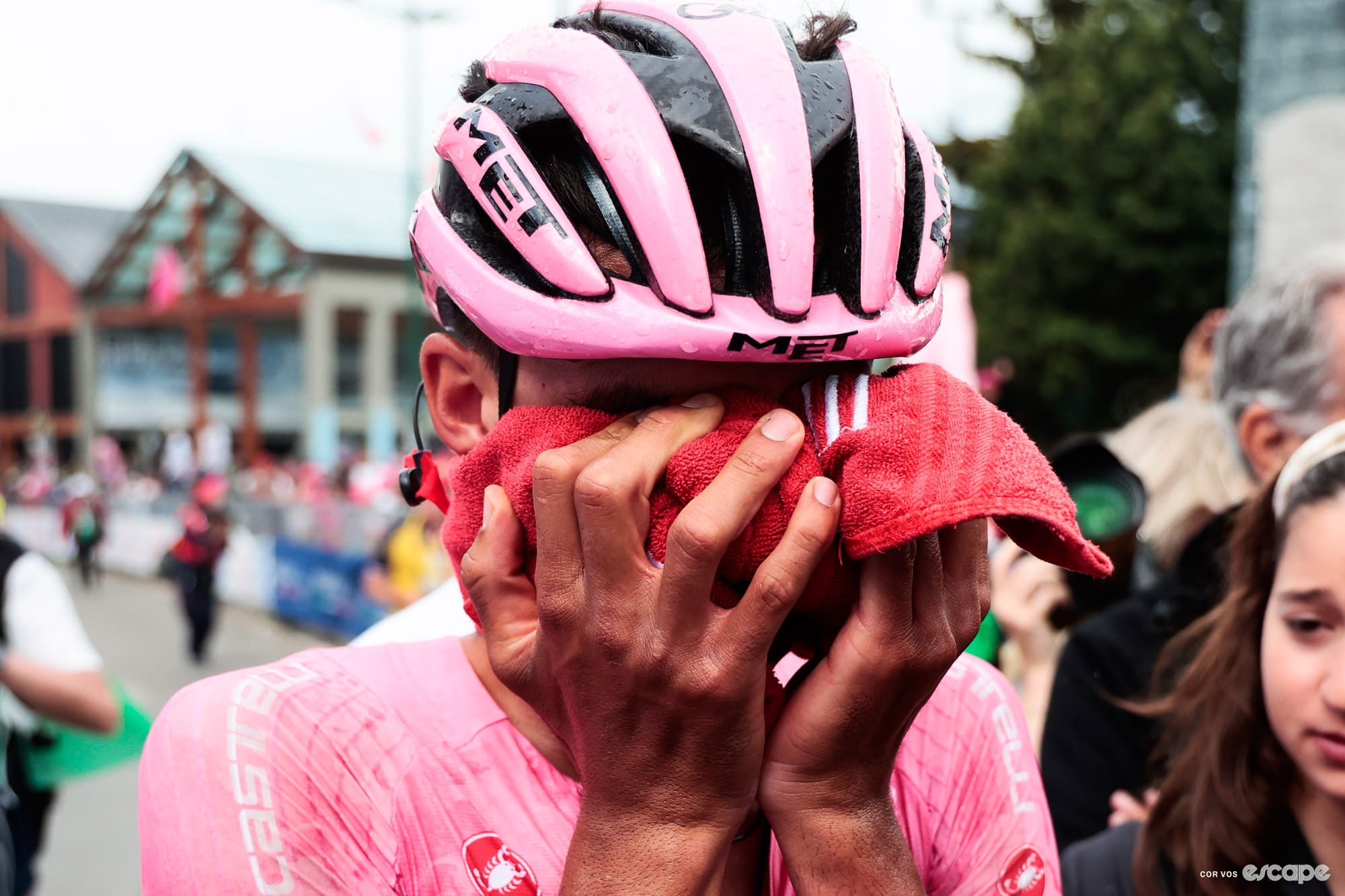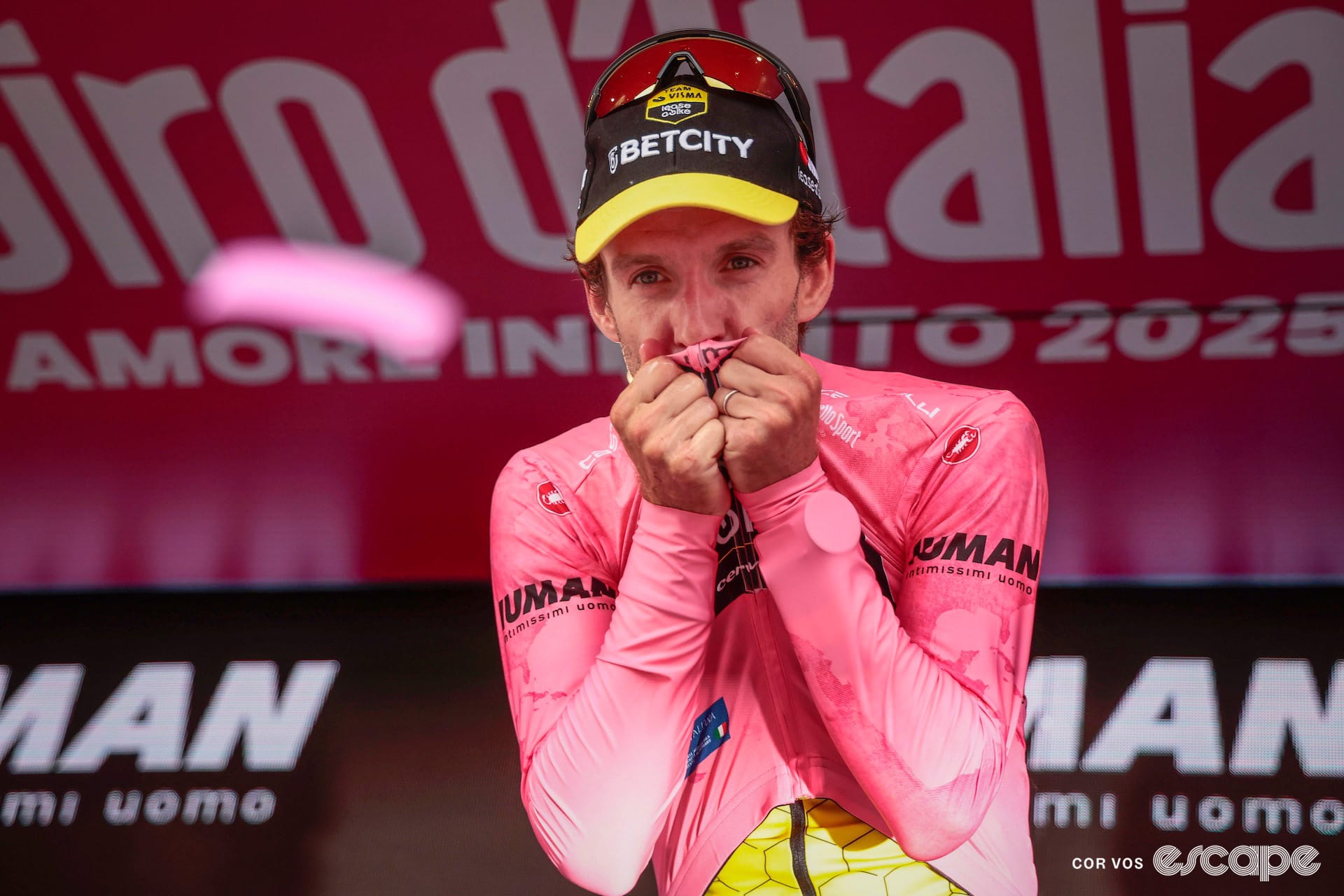Torino, IT — Biniam Girmay sat in the FranceTV set, bright lights glowing against a dark thunderstorm quickly building to the west, and quietly answered questions into a handheld mic. He explained how he did it, how he won the stage, how he picked lines and lost his lead-out train before riding up the right hand side through the narrow gap between Mads Pedersen and the barriers. On the other side of the street a crowd slowly grew, singing and calling his name as they waved flags and umbrellas that doubled as flags. For most the interview, he didn’t seem to register them, focused on answering questions in a second language as they flew at him in a third.
I couldn’t quite hear the last question asked, but the producer directed the cameras to pivot around toward the crowd. They grew louder and Girmay looked over, mid-answer, and choked up slightly. He stopped, looking out at them, and dropped his mic just a bit as he collected himself.
Girmay did the exceptional today. On a stage where cycling fandom’s focus was mostly on a higher-profile record, Mark Cavendish’s ongoing quest for 35, Girmay put forth a few firsts of his own. The first Eritrean to win a Tour stage; the first from his Intermarché-Wanty team to win a Tour stage; the first Black African to win a Tour stage. He and his team and his nation have waited a long time for this one and on that French TV set, with his countrymen chanting his name, the weight of all those firsts seemed to catch up with him all at once.
His teammates were glowing. Gerben Thijssen, Intermarché's’s other sprinter, stood outside the team’s RV (their bus broke down, so they’re in an RV, a temporary solution but nonetheless a visual representation of the have lots and have lesses in the WorldTour peloton) and chatted with reporters. Thijssen is a big man, stout, a very different type of sprinter from Girmay. He was the protected rider on Monday’s dead-flat stage; the leadout was for him, but the team mis-timed the run-in. Thijssen sat second wheel with more than 700 meters to go and knew he was doomed, that he would be imminently swamped. Girmay had lost the rest of their team earlier on and was back behind, surfing wheels, so Thijssen tucked in and rode hard and hoped something might come out of it.
“He’s such a kind, calm, easy person,” Thijssen said. “He’s such a big example. He’s given me motivation, that I have to stay calm, stay focused.” Thijssen told a story from the grupetto: When they’re struggling back there, sprinters out of their element, the lighter and more versatile Girmay will cheer him on. “Sometimes I’m panicking uphill, ‘Fuck fuck, I’m hurting I’m hurting.’ I need to fight. [Girmay] says, ‘Stay easy, stay easy, you can make it. You’re strong, you’re strong.’” He keeps his teammates going.
He rides up to Mark Cavendish and tells him he’s a legend, regularly.
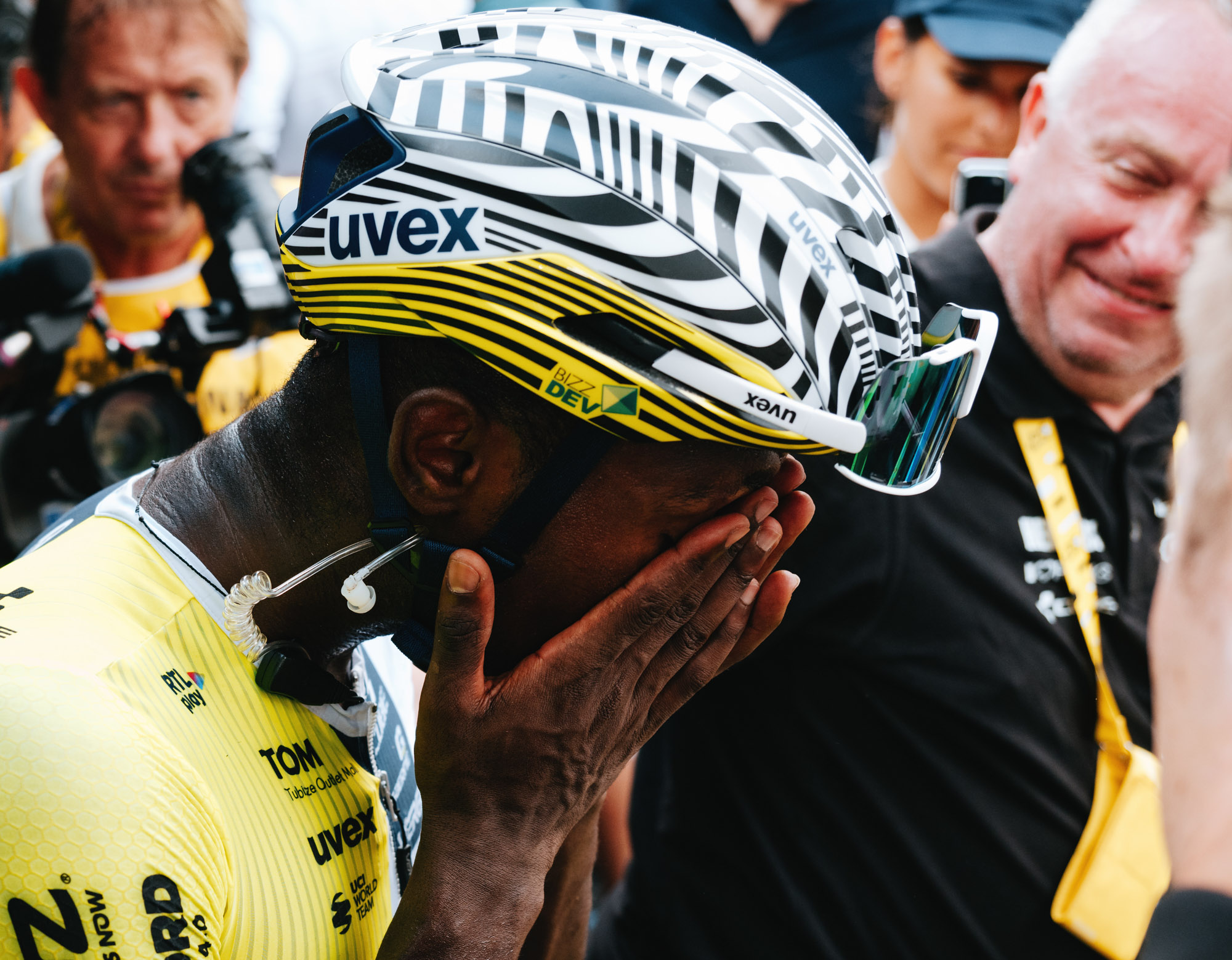
When Girmay was a kid, 2010 or so, his dad used to pull him out of lunch and over to the television to watch the Tour. Eritrea is a cycling nation, a cultural behemoth for the sport within the African continent. Girmay isn’t a big man but he always identified with the sprinters. He wanted to be like Peter Sagan and like Cavendish, racing with his elbows out, throwing his hands in the air ahead of a charging peloton. Just 24 years old, he has a Giro d’Italia stage and Gent-Wevelgem and now a Tour stage on his mantle. He’s one of the absolute best of his generation.
The questions in Girmay’s press conference all centered on the weight of his accomplishment within the history of the sport. Understandable. It’s impossible to ignore the significance of an Eritrean man, a Black man, sitting in the Tour de France winner’s booth and taking questions from the world’s press. He answers those questions admirably, albeit briefly. “Still, there are a lot of obstacles, a lot of ups and downs, especially if you are African rider it’s not easy to be a professional racer,” he said. But where he lights up is in discussion of his victory; of the sprint up the right hand side, passing Pedersen, the narrowing gap, “shutting his eyes” in the final kilometers to focus on the task at hand.
He repeats that yes, this is a big win for Africa, a big win for Eritrea, where he’s sure the party has already started. There are moments, like when he looks out over his countrymen from the FranceTV stage, when the broader magnitude clearly hits him. Tonight he’ll raise a glass with his teammates and team staff, they will salute a win for all those who had a harder road to the Tour de France and they will salute Bini, the athlete who has been dreaming of this moment for much of his life and now gets to live in it.
Did we do a good job with this story?

